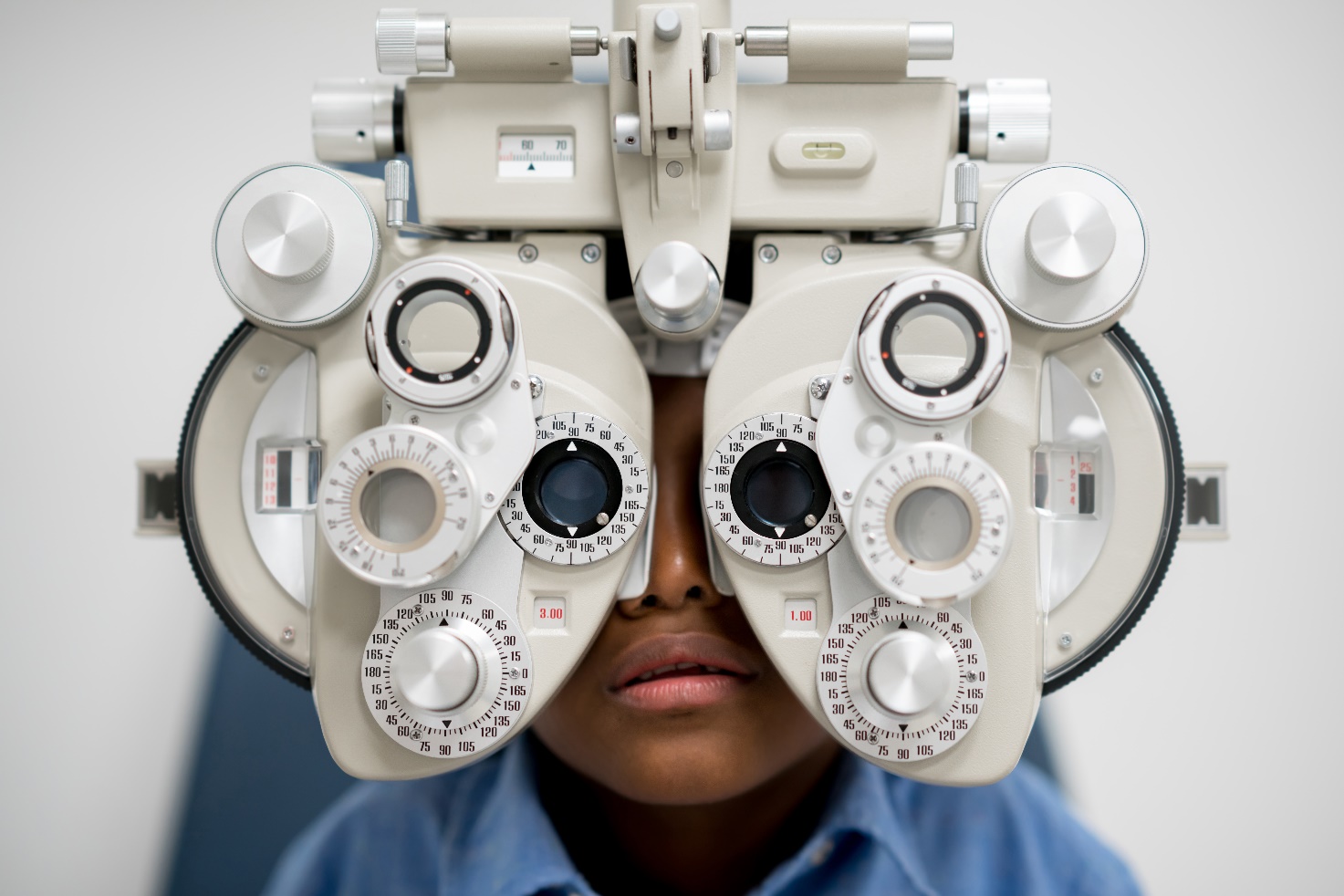Visual Impairment – Causes, Diagnoses and Impact
There are many reasons why children have visual impairments. Sometimes it’s genetic, or the result of an infection or injury. In many cases no specific cause can be identified.
Sometimes a simple explanation may be given, but diagnosis is often difficult, especially if the condition is rare and little understood. It’s not unusual for the diagnosis of a child’s medical condition to take months or even years. Sometimes families never get the explanation why their child has a visual impairment.
This article and Video about testing children’s eyes indicate what to expect and the eye doctor’s rooms, and these videos show how testing for various eye problems is done.

A kid using an ophthalmoscope
Questions to Ask from medical professionals
- What’s the eye condition called and how do you spell the name?
- What is the cause of my child’s visual impairment?
- Can anything be done to cure or improve the condition?
- Is any special treatment necessary?
- What can I do to help my child?
- Is there anything my child should not do (e.g., rub their eyes or shake their head, or take part in certain activities)?
- Is the condition likely to get worse, better or stay the same?
- What risks are there? For what should I look out?
- When should my child be examined again?
- Do you have more information on the eye condition that I could take home and read?
- Is this a family or inherited condition? If so, will we be referred to a genetic counsellor and have genetic tests?
- Is there a website on which we can find more information?
- Where should we go for further advice and help?
- What support is available?
Resources and information about testing and eye conditions
- There are various local and international organisations with web pages available on the internet, of which these resources are an example.
- If you have been given a diagnosis of a particular condition affecting your child’s vision, this video shows you how the eye works and here is information about Your Infant’s Visual Development.
- This website about ocular impairments, which occur because of physical problems with the eyes, has articles about Vision impairments written specifically for parents.
- Here are also articles about Low Vision and Cortical Visual Impairment (CVI) which is a visual impairment as a result of brain damage where the eyes can see, but the brain struggles to make sense of what the eyes see.
A child who is born blind does not know what it is like to see. Until he or she is old enough to begin to understand how other people do things, blindness seems normal. Therefore, a small child will not feel bad about blindness until someone teaches them (directly or indirectly) to feel bad about it. This article explains further. What blindness Means in the Mind of a Blind child
- Behaviour patterns some visually impaired (VI) children display (Blindisms) which are stereotypical behaviours which diminish through enough stimulation and interesting environments.

Child feeling a tactile book wearing eye guard to protect him from poking his eyes
On the following pages you will also find information and guidance about your own feelings, welcoming your child with a visual impairment in the family and with friends, a home program and information to guide you through helping your child to grow and develop to the best of his/her ability.
